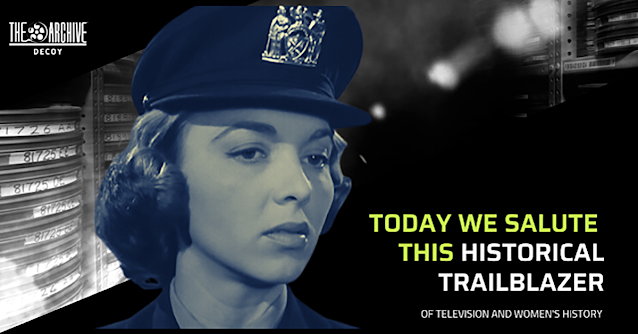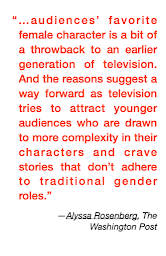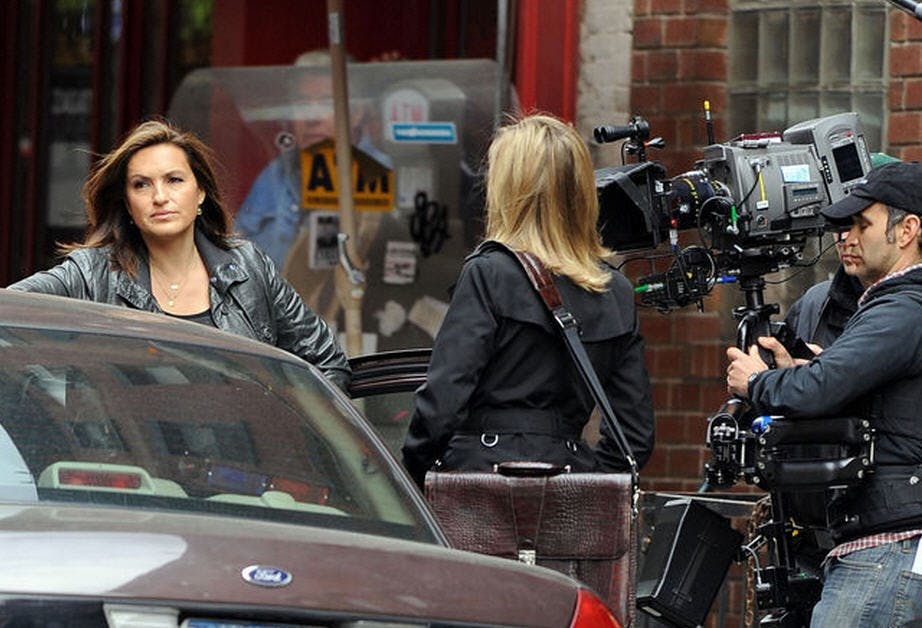TV's First Female Cop Arrested Audiences
Uncover the lost hero of ’50s television—Patricia “Casey” Jones.
TV'S FIRST FEMALE COP IN...DECOY
TV'S FIRST FEMALE COP IN...DECOY
This post was originally published on (3/5/21) and updated on (3/1/22).
In 1957, Beverly Garland pioneered the starring role of ‘Casey’ in the short-lived television series, DECOY (1957-1958). Producing only 39 episodes, Decoy was the first-of-its-kind to feature a policewoman as its syndicated star. Garland solidified her place in history as a cinematic first for women, yet remains largely unknown by American audiences. Casey Jones offered women of the '50s an empowered and respected, female hero of the silver screen; a role model, whose story was worth telling week after week!
Why has it been so decidedly forgotten?
 Forever memorialized on film, however, we can look back and re-examine the value of one of the earliest cop dramas that dared to unleash a feminine force of justice.
Forever memorialized on film, however, we can look back and re-examine the value of one of the earliest cop dramas that dared to unleash a feminine force of justice. 
 Beverly Garland is truly an unsung, feminist hero. She gives a sterling performance and shines with a unique shade of grace and grit that, one could say, perfectly embodies the lovable, yet hardened spirit of New York. Casey’s honest and noble struggle to traverse the murky waters of justice make Decoy all the more interesting and accessible. Casey ends each episode with a thoughtful takeaway to the camera. She invites the audience to contemplate issues raised, further adding to the show’s commendable level of maturity. She humanizes members of the police force by breaking the fourth wall and giving it to us straight.
Beverly Garland is truly an unsung, feminist hero. She gives a sterling performance and shines with a unique shade of grace and grit that, one could say, perfectly embodies the lovable, yet hardened spirit of New York. Casey’s honest and noble struggle to traverse the murky waters of justice make Decoy all the more interesting and accessible. Casey ends each episode with a thoughtful takeaway to the camera. She invites the audience to contemplate issues raised, further adding to the show’s commendable level of maturity. She humanizes members of the police force by breaking the fourth wall and giving it to us straight.Continually, Garland’s character neither rejects nor depends on her femininity. Casey does not have to be any less feminine to work with the boys or taken seriously in the field. A major premise of Decoy, is exactly that- going under cover. Casey’s investigations often depend on her ability to blend in, improvise, and read the people around her. A master of disguise, she embraces her intuition to handle high-risk scenarios with calm adaptability. All is fair in love and war, and when it comes to upholding the law, Casey Jones means business. Her skills as a compassionate negotiator also allow for the show to hit some of its most meaningful high-points. It is quite refreshing to see emotionality in this light—an asset, rather than hinderance.
NEW YORK CITY LANDSCAPE
Decoy simultaneously allows for a unique glimpse into the faded landscape of New York’s own past. The hustle and bustle of the ‘50s is alive and ever-present as Casey Jones pursues justice across nearly every Borough. Similar to today’s Law and Order franchise, investigations take us everywhere from Coney Island to Grand Central Station. With fewer permit restrictions, NYC can be the ultimate playground for storytellers and the cinematic excellence of Decoy, would be nothing without the stunning city behind it.
 SO, WHO CAME NEXT?
SO, WHO CAME NEXT? It would take another 16 years for a woman to hold up the title role again- this time, with more success. From 1974 to 1978, ran four seasons of Police Woman, a Los Angeles-based procedural drama for NBC Primetime.
After a successful guest appearance on the show, Police Story (1973-1977), Angie Dickinson proved that the world wants empowered, female heroes. She was offered a four year contract to star as Sgt. Leann “Pepper” Anderson of the LAPD. Police Woman was a full hour this time, giving audiences plenty of time to connect. With 91 episodes in all, the series won lots of awards and did, in fact, impact women in the ‘70s—simply through power of visibility. Perhaps American audiences were more open to this kind of female empowerment played out on the weekly. Perhaps it was the living color, Angie’s warm smile, or sun-kissed tan that kept audience’s attention this time. Maybe, there were simply more women watching tv in the first place. Either way, the resounding impact Police Woman had on American culture is evident—and not just in the ratings! Evidence indicates a significant rise in female interest and pursuit of a career in law enforcement. Many policewomen today bestow full credit upon Pepper Anderson for showing them the way to their noble calling.
Unfortunately, Angie Dickinson’s experience playing the hero was rather different and even though she garnered nation-wide fame, reflects with regret. In a 2019 interview, Dickinson describes making little money on the series and recalls feeling hesitant when they first offered the role (concerns over time restraints, rather than the role itself). This is obviously still an issue for women working in television today (consider Emmy Rossum’s more recent fight for equal pay on Shameless). Dickinson’s experience of feeling exploited is a shame, but comes as no surprise. Hollywood may have been ready to represent women in 1974, but their actions still had/have a long way to go. It’s hard to give the studios much credit for finally showcasing a female police star. They appear more dedicated to the ratings than the success of any women’s movement. I mean, they’ll take it, but Police Woman seems born out of pure interest in profiting off an untapped market.
EVOLUTION OF AN ICON
 Let’s consider now the reigning queen of this ever-popular procedural cop genre—Mariska Hargitay of Law and Order: Special Victims Unit (1999-present). She has been called “Queen of the Clapback" and is considered to be one of the best fictional detectives of all time. Even Vogue paid homage to her fashion this April, deeming Olivia Benson a “stealth style icon” for the ages!
Let’s consider now the reigning queen of this ever-popular procedural cop genre—Mariska Hargitay of Law and Order: Special Victims Unit (1999-present). She has been called “Queen of the Clapback" and is considered to be one of the best fictional detectives of all time. Even Vogue paid homage to her fashion this April, deeming Olivia Benson a “stealth style icon” for the ages!
With 20+ years under her belt playing Detective Olivia Benson, Hargitay has become more than a household name. She is one of the highest paid actresses in television today and deeply respected for her sensitive and serious handling of heavy topics. Issues concerning rape, abuse, and abandonment were no stranger to Casey in the ‘50s either and, like Benson, she met them with great empathy. I believe that, starting with Decoy, these policewomen allow for a more honest exploration of feelings.
SVU is without-a-doubt more focused on the team (ie. group effort) and has been since the beginning. Hargitay’s long-established presence on that team, however, solidifies her natural, feminine worth without also putting too much emphasis on it. Hargitay, in my opinion, truly picks up where Garland left off in developing her character—a no-nonsense, yet emotionally in-tune police investigator. They are both compelling to watch because they care about the people involved and therefore struggle themselves. The nuances and arcs of that “struggle” is what draws audiences in. Considering the serious (very real) nature of the crimes depicted, police dramas take on a certain level of responsibility to the public. It is truly exciting to see a trend in both Decoy and Law and Order, that decidedly lays focus on a flawed justice system, rather than the officer’s gender. For example, the fact that Casey’s a woman rarely ever comes up in the series- neither as an issue nor a particular point of interest. She just is.

SVU is without-a-doubt more focused on the team (ie. group effort) and has been since the beginning. Hargitay’s long-established presence on that team, however, solidifies her natural, feminine worth without also putting too much emphasis on it. Hargitay, in my opinion, truly picks up where Garland left off in developing her character—a no-nonsense, yet emotionally in-tune police investigator. They are both compelling to watch because they care about the people involved and therefore struggle themselves. The nuances and arcs of that “struggle” is what draws audiences in. Considering the serious (very real) nature of the crimes depicted, police dramas take on a certain level of responsibility to the public. It is truly exciting to see a trend in both Decoy and Law and Order, that decidedly lays focus on a flawed justice system, rather than the officer’s gender. For example, the fact that Casey’s a woman rarely ever comes up in the series- neither as an issue nor a particular point of interest. She just is.

The justice system is full of weeds…
On the other hand, SVU is so notoriously shot in and around the whole city (a detail upheld by Decoy) and absolutely adds to the believability for both actors and audiences alike. Some have suggested that such attention even elevates the city backdrop as more than a mere location, but a fully-fledged character in its own rite.
The longevity of SVU speaks to the success of shedding light on the faces, places, and reasons leading up to criminal actions. I believe if Decoy was given a chance, Casey Jones would’ve climbed the ranks just as her New York successor has in her 20+ year career. In their struggle and loyal pursuits, both Casey Jones and Olivia Benson add a dimensional layer of understanding that dignifies the real-life gravity of an imperfect justice system. Their actions inspire others to seek full understanding before making harsh judgements on a situation. They wear the badge with pride, but also immense sadness, knowing the reality and cost all too well.
If you’d like to see for yourself, I urge any cinephile to consider the wonderfully shot, female empowered, 39 episodes of DECOY- a sorely forgotten, historical trailblazer for every policewoman thereafter!
History has a selective memory, damning some achievements to be forgotten. For overlooked gems such as this one, the undue neglect can be rectified. As we unearth and examine more discarded classics, we may find more lost treasures of the past- missing pieces that tell a deeper story of the past. Set aside all historical significance and you still have 39 solid episodes of slick noir, well-written, well-acted television. A quick glance at the IMDB page will reveal just how positively people respond to this obscure, ‘unheard of’ series. There may not have been an audience back in ’57, but there is certainly one now.
If you’d like to see for yourself, I urge any cinephile to consider the wonderfully shot, female empowered, 39 episodes of DECOY- a sorely forgotten, historical trailblazer for every policewoman thereafter!
—
The entire series is available on TheArchive.
Download the app and start watching for free! | Visit TheArchive.tv to learn more.
Download the app and start watching for free! | Visit TheArchive.tv to learn more.
 |
 |
























Comments
Post a Comment